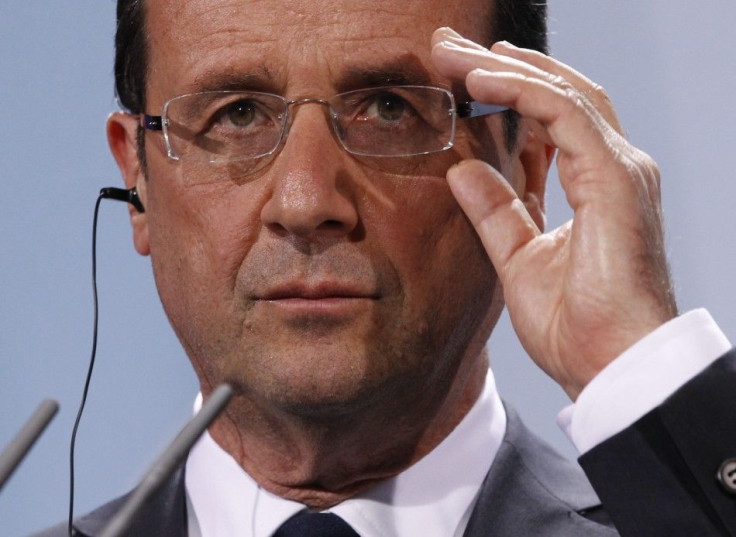David Cameron To Oppose François Hollande On Afghanistan Troop Withdrawal Timetable

In bilateral discussions on Friday, British Prime Minster David Cameron is expected to urge newly elected French President François Hollande to renege on campaign promises to withdraw French troops from Afghanistan by the end of 2012.
Hollande, a Socialist who won this year's presidential election against Nicolas Sarkozy, campaigned on pledges to resist economic austerity in the euro zone and to make an early exit from Afghanistan. Both of these ideas are opposed by Cameron, who supported Sarkozy during the French election and declined to meet with Hollande while the Socialist candidate was visiting London in February.
Now, the British prime minister says he wants to build a strong working relationship with the new French president.
He will meet with Hollande on Friday morning, directly preceding a G8 summit at Camp David in Maryland during which leaders of the world's eight-largest economies will discuss the European debt crisis and other issues.
For Hollande, who was sworn into office on Tuesday and is meeting many world leaders for the first time this week, the summit will be an opportunity to test his diplomatic strength and champion the values of his Socialist base on a global scale.
With French parliamentary elections scheduled for June 17, Hollande has political motivations to maintain his campaign promises of implementing a faster timeline for the withdrawal of French troops from Afghanistan.
Currently, about 130,000 troops from over 50 different nations are serving in Afghanistan as part of NATO's International Security Assistance Force (ISAF). Over 90,000 of those are from the United States. Another 9,500 come from the United Kingdom, followed by 4,818 from Germany, according to the Agence France-Presse. France has about 3,400 troops on the ground.
These forces are working to equip and train the Afghan National Security Forces (ANSF), which has about 164,000 members, so that it can maintain order and defend Afghanistan against insurgencies, al Qaeda attacks and other threats.
NATO has predicted that ISAF troops can safely hand over combat responsibilities to the ANSF in 2014, but insurgent activities and a network of constantly shifting alliances among Afghan authorities are hampering efforts to promote stability. International public support for the mission in Afghanistan has been declining for years, and many countries, including France, hope to decrease their troop presence in Afghanistan before 2014.
Following the deaths of five French soldiers in January, then-President Sarkozy moved France's withdrawal date up to 2013. Hollande now aims to speed up the process even more; while campaigning for the presidency, he frequently asserted that our mission in Afghanistan is completed and promised to withdraw troops by the end of this year.
Now that he is in office, however, Hollande has toned down his language. According to the Washington Post, he now calls for withdrawing military combatants, with the implication that trainers and other non-combative forces could remain in Afghanistan beyond 2012.
This new pledge leaves some details unclear. Many troops work in roles that involve both combat and training, leaving some ambiguity over how many troops would fall under the combatant umbrella for immediate withdrawal. There are also logistical concerns; military specialists note that transporting all of France's vehicles and supplies out of Afghanistan cannot feasibly be done by the end of this year.
Cameron will likely seek clarification on these finer points on Friday. In addition to encouraging Hollande's commitment to the ISAF mission in Afghanistan, Cameron is also expected to discuss Syria and Iran.
Following these talks and the G8 meeting this weekend, NATO members and others who are involved in the Afghanistan conflict will meet in Chicago for a major summit on May 20-21. There, contributors to the ISAF mission will coordinate plans and discuss a timeline for troop withdrawal.
© Copyright IBTimes 2024. All rights reserved.






















